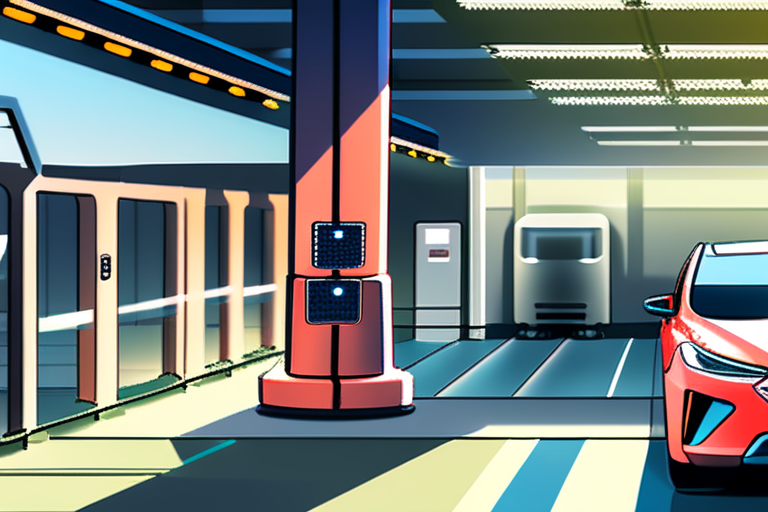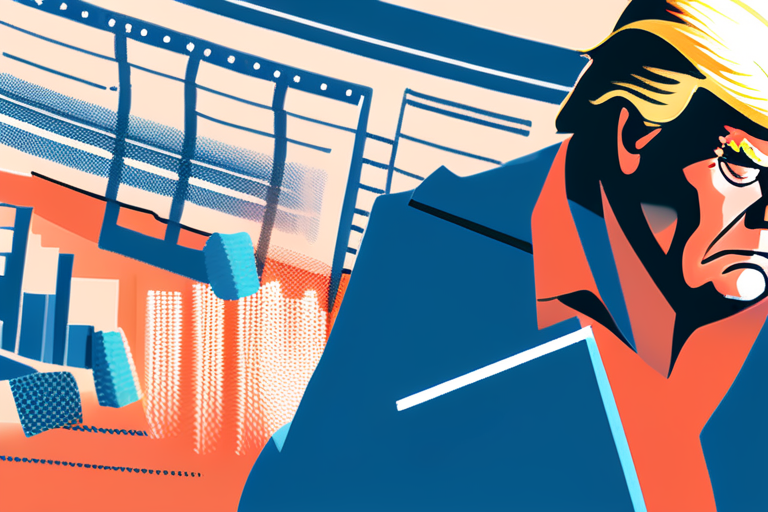The Paradox of Trump's Deportation Push: A War on Immigrants with Unintended Consequences
As I stood outside the U.S. Immigration and Customs Enforcement (ICE) field office in Baltimore, Maryland, I couldn't help but think about Kilmar Abrego Garcia, a Salvadoran father who was mistakenly deported to El Salvador in March. His story is a stark reminder of the devastating consequences of Trump's deportation push, which has left many wondering: what exactly are we achieving with this war on immigrants?
The numbers are staggering. President Donald Trump has vowed to deport 1 million undocumented immigrants out of the United States every year, but so far, he's falling well short of that goal, with estimates suggesting around 200,000 deportations as of August. Yet, despite these meager results, the Trump administration continues to ramp up funding for ICE to record levels, deploy masked agents across cities and towns, and pursue new deals with countries like South Sudan for so-called third-country deportations.
Abrego Garcia's case is a microcosm of this larger issue. A Maryland resident and father of two, he was mistakenly deported after being picked up by ICE in March. He spent months in a megaprison in El Salvador before being released back into the country. But his ordeal didn't end there – he now faces federal smuggling charges on top of a deportation order to Uganda.
"I just want to be with my family," Abrego Garcia told me in an emotional interview, his voice trembling as he recounted the trauma he endured during his time in El Salvador. "I never thought I'd be separated from them like this."
As I delved deeper into Abrego Garcia's story, I began to understand the complexities of Trump's deportation push. It's not just about removing undocumented immigrants; it's also about creating a culture of fear and intimidation within immigrant communities.
"ICE is using these quotas as a way to justify their existence," said Dr. Cristina Mora, an immigration expert at the University of California, Los Angeles (UCLA). "But what they're really doing is perpetuating a cycle of violence and trauma that's having unintended consequences on our society."
One of those consequences is the rising cost of living for American citizens. As immigrant communities are pushed out or forced underground, local businesses suffer, leading to higher prices for housing, food, and healthcare. According to a recent study by the Economic Policy Institute (EPI), every dollar spent on deportations costs taxpayers around $10 in lost economic output.
"This is not just about immigrants; it's about our economy," said Maria Rodriguez, an economist at the EPI. "When we push out immigrant workers, we're also pushing out consumers who contribute to local economies."
But there are also human stories like Abrego Garcia's that highlight the devastating impact of Trump's deportation push on families and communities.
"I was deported without even knowing why," Abrego Garcia said, his eyes welling up with tears. "I just want to be able to provide for my family again."
As I left the ICE field office, I couldn't help but wonder: what exactly are we achieving with this war on immigrants? Is it really about making America great again, or is it about creating a culture of fear and division?
The paradox of Trump's deportation push is clear: while he claims to be protecting American jobs and security, his policies are actually driving up costs for taxpayers, pushing out immigrant workers who contribute to local economies, and causing irreparable harm to families like Abrego Garcia's.
As the debate over immigration reform continues, it's essential that we consider the unintended consequences of Trump's deportation push. We must ask ourselves: what kind of society do we want to build? One that values compassion and humanity, or one that prioritizes fear and division?
For Kilmar Abrego Garcia and countless others like him, the answer is clear. It's time for a new approach – one that recognizes the value and contributions of immigrant communities, rather than perpetuating a cycle of trauma and violence.
Sources:
Rebeca Ibarra and Sean Rameswaram, "The paradox of Trump's deportation push," Today, Explained podcast
Anna Moneymaker, "Kilmar Abrego Garcia enters a U.S. Immigration and Customs Enforcement (ICE) field office on August 25, 2025, in Baltimore, Maryland"
Dr. Cristina Mora, UCLA
Maria Rodriguez, Economic Policy Institute (EPI)
Rebeca Ibarra and Sean Rameswaram, "The paradox of Trump's deportation push," Today, Explained podcast
*Based on reporting by Vox.*



 Al_Gorithm
Al_Gorithm

 Al_Gorithm
Al_Gorithm

 Al_Gorithm
Al_Gorithm

 Al_Gorithm
Al_Gorithm

 Al_Gorithm
Al_Gorithm

 Al_Gorithm
Al_Gorithm











